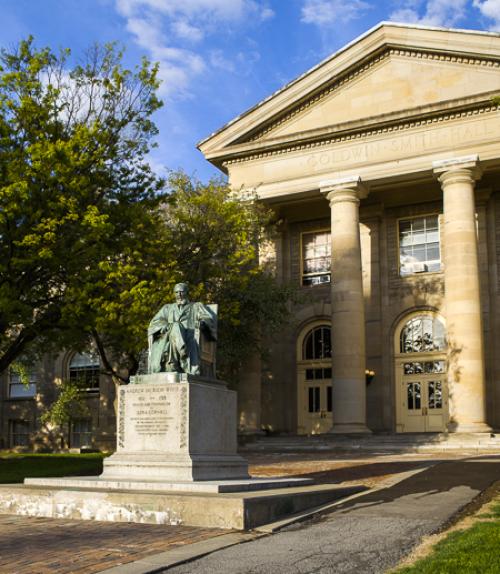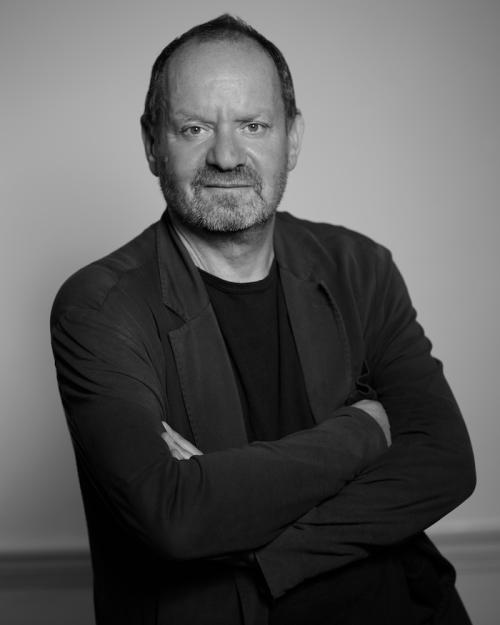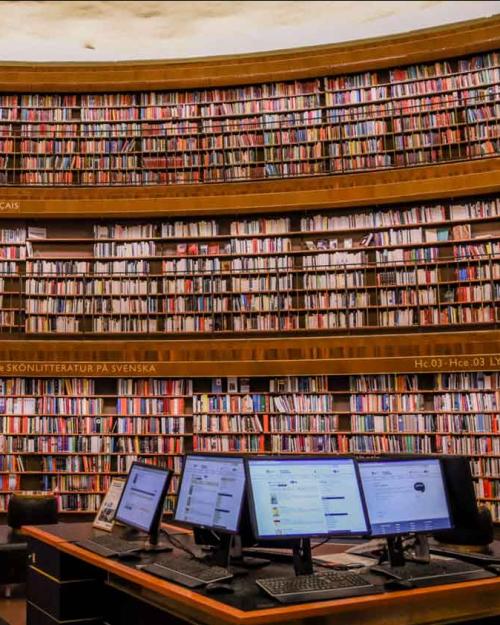An interdisciplinary project involving faculty, staff and graduate students is sparking collaborations among those interested in computational, digital and data-driven approaches to the study of history, languages and culture.
The Digital Humanities Initiative (DHI), begun in 2024, includes faculty from the College of Arts & Sciences, the Ann S. Bowers College of Computing and Information Science and Digital Scholarship Services at the Cornell University Library and is part of the Provost’s CIVIC Initiative.
"Cornell has a huge amount of teaching and research happening in areas related to digital humanities,” said Matthew Wilkens, associate professor of information science and a faculty member in the initiative. “The intuition behind the DHI is that bringing those disparate projects together, even just by sharing experiences and results, will help all of them be their best outcomes. We'll know we're succeeding if we see more, and more deeply collaborative, work in the area over the next few years."
This year, the group is offering several colloquia featuring faculty and graduate students and three public events with outside speakers. The first public event is Nov. 14 featuring Tom Lippincott, associate research professor of computer science at Johns Hopkins University. Lippincott’s talk, “How to have a good time in the wilderness: Designing computational experiments that produce knowledge about the historical and cognitive processes of culture,” will take place at 3 p.m. in Room 350 of the Computing and Information Science Building.
“Our hope is to centralize digital humanities efforts across campus,” said Lindsay Thomas, associate professor in the Department of Literatures in English (A&S) and another faculty member of the initiative. “We’re interested in supporting a broad interpretation of the digital humanities, working together to think about how to support and make collaborative research across the university possible.”
Those efforts include both traditional digital humanities work, such as digitizing archives of poetry, music or other materials in order to make them accessible; to more technical challenges, such as the one that Wilkens is tackling: using large language models to study literary change over time.
“It used to be the case that, if you wanted to extract information from a thousand books, you had to understand the algorithms involved and know how to write code to implement them,” Wilkens said. “Now, you can just feed the text to ChatGPT and get results that are generally better than the previous state of the art.
“The doesn't mean that computational work is easy. Good ideas are still rare. But, if you have a good idea, you can try it out without years of technical training. In effect, AI has democratized access to computational humanities research."
Wilkens is also using AI to generate novels, with a goal of steering the writing toward particular properties. “If we can validate our preliminary results, then we'll be able to run proper literary experiments. Like, if we introduce new cultural knowledge to a past literary situation, how would we expect novels written in that era to respond? Or if the criteria for literary prizes were to change, what effects would that have on literary fiction or on bestsellers?" Wilkens said.
Thomas is undertaking computational projects to study how the length of novels changes over time and to study “AI slop,” the low-quality AI-generated content flooding social media and search engines.
“People are interested in using computational and digital technology to answer humanistic research questions,” she said. “There’s a groundswell of interest, particularly among graduate students and I’ve found that once you build the research support, you discover an even larger group of people working on this.”
In its first year, initiative members reached out across Cornell’s campus to learn about others already working in the digital humanities space. They also visited Princeton University, the University of Pennsylvania and Penn State University to learn about the digital humanities centers there.
“We’d like to find ways to help faculty find funding to get projects off the ground, typically by hiring graduate research assistants, but we also want to train undergraduates to do this research,” Thomas said. “You don’t need much money to get these projects off the ground.”
Other events this academic year include:
- Nov. 21: Nori Jacoby, assistant professor of psychology (A&S), “Mapping Cultural Diffusion through Global Music Data," noon, Olin Library Room 703
- Feb. 20: Ambre Dromgoole, assistant professor in the Africana Studies and Research Center (A&S), noon, Olin Library Room 703
- March 18: Jesse Rodin, Osgood Hooker Professor of Fine Arts, Stanford University, time and location TBA
- March 20: Malte Ziewitz, associate professor of science & technology studies (A&S) and director of the Digital Due Process Clinic, noon, Olin Library Room 703
- April 6: Chris Dancy, co-director of the Center for Black Digital Research and associate professor of industrial and manufacturing engineering & computer science and engineering, Penn State University, time and location TBA
- April 15: Meredith Martin, professor of English, Princeton University; this talk is organized by the Society for the Humanities and co-sponsored by the Digital Humanities Initiative, time and location TBA
- April 24: Graduate student panel, noon, Olin Library Room 703




